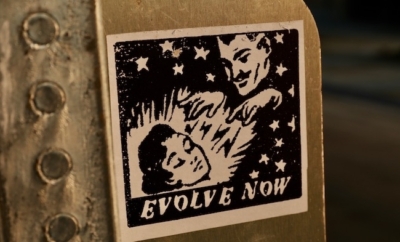
Depression
Rejection Sensitivity
People at risk for becoming depressed worry more about what others think about them than the general population. They are highly tuned in to body language, facial expressions, cadence of words, and often read between the lines of conversations, inferring hidden meanings. This propensity to be empathic can be channeled in healthy ways but people who become depressed tend to harp on the negatives. If your underlying motivation for tuning in is to find proof of your worthlessness or defects you are setting a dangerous trajectory for yourself.
People who become depressed are more worried about how others respond to them. You know those friends or acquaintances who seem to be bulletproof from getting embarrassed? No matter how ridiculous they are made to look or what comes out of their mouths they let events roll off their shoulders and move on with their days. People who become depressed are the opposite.
They fear rejection and tend to regard small social slights as global proof of their deficits. Fear of rejection usually acts as a self-fulfilling prophecy. You will find what you are looking for, either by focusing exclusively on a small part of an encounter, perceiving rejection where there is none, or acting in a way where the other’s rejection of you is an assured outcome. Human behavior is varied and you can usually find what you want in a human relationship. If you consider a person to be fun and outgoing you will recognize those attributes and ignore or minimize the times when he or she is feeling sad or wants to be alone.
High rejection sensitivity and low self-concept go together. When you need external sources to validate you as a person you are always at risk for low self-concept because the validation might stop. Our culture thrives on external sources of validation. Since you were a kid you have been judged based on your outward behavior rather than who you are as a person. Think about that for a second. Children are told they are good when they are behaving well. They are given gold stars at school when their work is acceptable. They are cheered when they do well in sports. Society does not do a good job of recognizing people as worthwhile and deserving of respect because they are people. It’s always based on accomplishment.
There is one relationship a child has that predicts whether his self-concept will be high or low as an adult and this is the relationship with his parents. Parents who love their children for who they are rather than what they do prove to them from an early age that they are special, have dignity, and are worthy of respect simply because they are. They do not have to do anything for their parents’ love, it just exists. People with low self-concept who become depressed usually did not have this type of relationship as children. I have rarely worked with a person suffering from depression who did not report abuse, difficult parental relationships, and feelings of worthlessness that have been in place since childhood. Love was not constant but instead conditional and often taken away for no discernible reason. On an unconscious level they have always battled feelings of being unlovable because their first and most important relationship fostered them.
When you don’t feel lovable and your self-concept comes from external sources a black hole is created that can never be filled. Your intimate relationships are not fulfilling because friends and romantic partners are incapable of giving you what you really need. And that is self-love. It’s the feeling in your bones that you are worthy of the admiration and love that comes from others.
Increasing your self-concept is a long journey of self-discovery. It’s not going to change in a day or a week and it takes courage to face your past, your present, your Self, and your relationships. Building a thicker skin and being less sensitive to rejection is a little bit easier and behavioral psychology can help you get there rather quickly.
I used to play a game with friends when I had just graduated from college that we called Farkle. We would all come up with an embarrassing situation that one unlucky player would have to enact in a social setting. For example, a friend had to approach the most beautiful girl on the beach by rising up out of the ocean like he was the first creature on earth and then crawl towards her making dinosaur noises until finally standing up and saying hello. Another girl had to run towards a guy she had a crush on at a bar holding her pants up from behind frantically asking him where the bathroom was. These scenarios were horrifying and hilarious, and a funny thing happened as the weeks went by. We all began to grow thicker skins, and what once seemed shocking began to feel commonplace. After a while we gave up playing the game altogether because the embarrassment factor that made it so fun to watch had completely disappeared. It’s a behavioral reality that most people can adjust rather quickly to new circumstances. They find equilibrium with their environment and after a while conditions that seemed unacceptable become par for the course.
If you have high rejection sensitivity, your goal can be to purposefully embarrass yourself at least once a day. Say something outlandish in the elevator. Approach someone from the opposite sex at a bar or restaurant with the goal of getting shut down. This is called paradoxical intention and it works incredibly well. By purposefully trying to do more of whatever it is you are avoiding the anxiety that accompanies these events tends to go away. The famous psychologist Albert Ellis once decided to approach 100 girls at a botanical garden to face his fear of new encounters with the opposite sex. He ended up meeting his future wife. I am not claiming that you will meet the person of your dreams, but you will quickly learn that rejection is not that bad. The earth keeps spinning, people go on about their days, and you will be able to as well.
Related posts:
- Love And Vulnerability “We are never so vulnerable as when we love.” – Sigmund Freud We usually don’t think of loving relationships as inspiring vulnerability. Just the opposite actually, we feel safe and supported, that we can be ourselves without any fear. The loving relationships are exactly where we can let our freak flags fly, where we can […]...
- Vulnerability Most of us have become aware of the many unfair competing cultural demands that women face but men don’t always have it easy either. One of the most perplexing and anxiety provoking areas in romantic relationships is the expectation that you be strong and vulnerable at the same time. Most women will agree it’s a […]...
- The Will To Love Nietzsche mocked and derided Christianity, seeing it as the inversion of all values, where the weak and the botched were glorified and the noble and strong called sinful. He was concerned with power and saw power dynamics everywhere. One of his most famous and certainly most epic aphorisms reads “Wherever I saw the living there […]...
- Treat Loved Ones Lovingly Treating Acquaintances Better Than Intimates An important ‘aha!’ moment explodes into our consciousness when we realize that we may have started treating mere acquaintances and other people we don’t particularly care about more lovingly, more gently, more sensitively, more patiently, more kindly, than the people we profess to love. How does this happen? How do […]...
- Put Rejection In Perspective Whether the relationship is professional, romantic, or friendly being tossed aside hurts. But most people let rejection hurt them more than it has to because they don’t work through what it really means to them at the unconscious existential level or how this meaning is influenced by a cognitive distortion. At the unconscious existential level […]...
- Unrequited Love Unrequited love is painful not just because you don’t get to be with the object of your affection but because, however kindly you’re let down, it’s the person you believe to be perfect and wonderful and beyond reproach who hurts you so deeply with that lack of interest. Yeah, it sucks when your enemies hurt […]...
- Carry Your Loved One With You There is no aspect of the human condition more tragic than the fact that we choose life yet must accept death, our own deaths and those of our loved ones. When the people closest to us do die, many of us can’t or won’t accept the finality of the situation, feeling stuck and unable to […]...
- Take Care Of Your Relationship Think of the objects in your life that you are most careful around, the things towards which you are purposefully gentle, almost reverent. Whatever they are, you need to think of your romantic relationship as first place on the list, treating it even more carefully than you treat those objects. Actually it’s utter insanity that […]...
- Human Connection Where authentic human connection is depression is not. Depression wants to rob you of your most important relationships. It wants to hold you back from forming new ones. It wants to keep you emotionally and physically isolated. It wants to make you appear uninterested and boring. The more it can keep you from spontaneously interacting […]...
- Dealing With Rejection From a behavioral point of view when someone rejects you what they are actually rejecting is a constellation of behaviors. Conversely when they accept you what they are accepting is a constellation of behaviors. One of the reasons rejection hurts is because most of us don’t view it that way. Whether someone has known us […]...
- Courage “Courage is not the absence of despair. It is, rather, the capacity to move ahead in spite of despair.” -Rollo May When I think of courage I can’t help but be influenced by the not so subtle messages that movies have been instilling in me since I was young. The image in my head is […]...
- Afraid To Be Yourself If all your relationships were healthy or if all your relationships were abusive you’d actually kind of have a tough time figuring out whether your relationships with specific individuals were healthy or abusive. Of course the goal should be to surround yourself with people who support you and are concerned with your growth and happiness, […]...
- Embarrassment Help All of us face those awkward encounters once in a while where we stick our feet in our mouths, do something stupid that catches others’ attention, are publicly called out for our incompetence, or perform a task poorly in front of others. These situations can produce embarrassment or even shame, not fun emotions to deal […]...
- Gossip Usually a gossiper has a negative self-concept and low self-esteem. He or she feels unlovable, although these thoughts might be unconscious and are usually rationalized. This leads to the incessant need to spin narratives and obsess about the lives of others. The act of gossiping is a clever way to distance yourself from the spotlight […]...
- Self-Love You can’t love others until you love yourself. As Erich Fromm was fond of saying, there is no concept of humanity of which you are not a part, and any doctrine that insists on the need to love others while excluding the need to love yourself proves itself to be fundamentally flawed and contradictory. You […]...
- Self-Full Acts A lot has been made of whether there is such a thing as a selfless act. From the behavioral point of view the answer is a resounding no. All behavior is explained by reinforcements. If it’s not reinforcing in some way there will be no behavior. In the context of supposedly selfless acts, these acts […]...
- Trying to Possess Someone “Caring for but never trying to own may be a further way to define friendship.” – William Glasser Glasser makes the incisive point in one of his books that if you think of your longest lasting and healthiest relationships they are probably with friends, and what separates the way you relate to friends with the […]...
- Depression And Power Depression and power have a paradoxical relationship. On the surface it seems like those suffering from depression are powerless. They certainly feel powerless in the face of that malignant, happiness sucking, energy sucking, life sucking force. But at the same time they enjoy a position of power, disguised as powerlessness, when it comes to their close relationships. […]...
- Believe In Yourself Psychological studies have shown that when at-risk youths have even just one person take an active interest in their lives, deciding to believe in them no matter what, outcomes improve dramatically. It seems that having people believe in us is a vital ingredient for believing in ourselves. Really this is an idea that could have […]...
- Help For People Pleasers On the surface people pleasers seem laid back, amiable, and happy to go with the flow. But underneath, in the private world of their psyches, a storm rages. What they really feel is hostile and resentful. They feel pushed around and bullied. They feel angry at others for taking advantage of them. And they feel drained, drained […]...




